Luleå University of Technology (LTU) is a well-known higher education institution in northern Sweden, focusing on engineering, natural sciences and social sciences. It is located in Luleå, northern Sweden, close to the Arctic Circle and is known for its excellence in research and education. Here are some key information about Luleå University of Technology:
Overview
Founded: 1971 (as a technical college), officially became a university in 1997
Institutional nature: public
Main campus location:
Luleå, the main campus is located near the center of Luleå, in addition to Piteå Campus (Music and Technology) and Kiruna Campus (Space Technology and Mineral Resources Management)
History
The history of Luleå University of Technology can be traced back to 1971, when Luleå Institute of Technology was established.
In 1997, the school was officially upgraded to a university and gradually developed into a comprehensive research university.
During its development, LTU has continuously expanded its subject range and established several research centers.
School Strength
Luleå University of Technology has about 16,000 students (including undergraduates, postgraduates and doctoral students) and about 2,000 faculty and staff.
It offers a wide range of undergraduate, master's and doctoral courses covering multiple subject areas.
It enjoys an international reputation in the fields of engineering, information technology, space technology, sustainable development, mining engineering, etc.
The school's research results have an important influence internationally, especially in polar research, sustainable technology and innovation.
Educational philosophy
Emphasis on the combination of theory and practice, encouraging students to develop skills through practical projects and service learning.
Focus on interdisciplinary cooperation, especially collaboration between different majors.
Attach importance to international education, recruit a large number of international students, and provide courses taught in multiple languages.
Committed to cultivating professionals with innovative spirit and social responsibility.
Disciplines
Bachelor's degrees:
Engineering (such as mechanical engineering, civil engineering, electrical engineering, etc.)
Information Technology
Space Technology
Mining Engineering
Sustainable Development
Master's degrees:
Engineering
Information Technology
Space Technology
Mining Engineering
Sustainable Development
Social Sciences
Master's programs in other related fields
PhD programs:
LTU offers doctoral programs in a variety of engineering, information technology, space technology and social sciences, supporting in-depth research and innovation.
Featured projects
Interdisciplinary research centers: The school has a number of interdisciplinary research centers to promote cooperation and exchanges between different disciplines.
International cooperation projects: Actively participate in the EU's Erasmus+ project and other international exchange programs to provide students with opportunities to study abroad.
Entrepreneurship support: There is a dedicated entrepreneurship center (LTU Innovation) to help students transform scientific research results into commercial applications.
Research facilities: LTU has advanced laboratories and research centers, such as the European Space Research and Technology Center (ESTEC), the Arctic Research Center (Arcum), etc.
International cooperation
LTU has established partnerships with many top universities around the world and participates in many international research networks and alliances.
Provides exchange student programs to promote international perspectives and cultural exchanges among students.
As a member of several international organizations, LTU enjoys an important position worldwide.
Research facilities and resources
European Space Research and Technology Centre (ESTEC): Although ESTEC itself is located in the Netherlands, LTU has a close cooperative relationship with it, especially in the fields of space technology and satellite communications.
Arctic Research Centre (Arcum): Promotes research on environmental and social issues in the Arctic region and is committed to sustainable development solutions.
Kiruna Campus: Focuses on research in mining engineering and space technology, and works closely with local mining companies and research institutions.
Piteå Campus: Provides education in music technology and media technology, combining the unique advantages of art and technology.
LTU Luleå Biomedical Engineering Laboratory: Conducts research in biomedical engineering and develops new medical technologies and equipment.
Costs
For EU/EEA students, LTU is usually free, but a small registration fee is required.
For non-EU/EEA international students, tuition fees vary depending on the major, and the specific fees should be consulted directly with the school or visit its official website for the latest information.
In terms of living costs, the cost of living in Luleå is relatively moderate, but you still need to consider the costs of accommodation, food and personal expenses.
Application requirements
Applicants are usually required to have a high school diploma or equivalent and may need to complete certain prerequisite courses.
For master's programs, an undergraduate degree in a related field is usually required.
You will need to pass an entrance exam or interview to demonstrate your interest in your chosen field and your ability to pursue a career in the field.
The English language proficiency requirement is usually B2 level (according to the Common European Framework of Reference for Languages CEFR), but some programs may require higher levels.
-

Linnaeus University
-
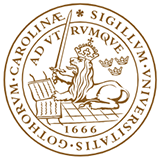
Lund University
-
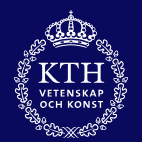
KTH Royal Institute of Technology
-
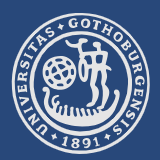
University of Gothenburg
-
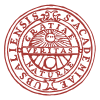
Uppsala University
-
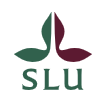
Swedish University of Agricultural Sciences
-

Halmstad University
-
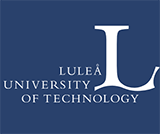
Luleå University of Technology
-
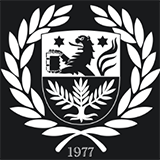
University of Skövde
-
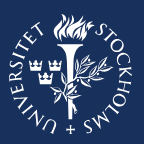
Stockholm University
-

Mesoamerican University
-

Istmo University
-

Mariano Galvez University of Guatemala
-

Regional University of Guatemala
-

Galileo University
-

Francisco Marroquín University
-

Rafael Landívar University
-

University of the Valley of Guatemala
-

University of San Carlos of Guatemala
-

Technological Institute of Tlaxcala Plateau
-

Golfo University
-

Technological University of South Sonora
-

Technological University of Huejotzingo
-

Tizimín Institute of Technology
-

Chilpancingo Institute of Technology
